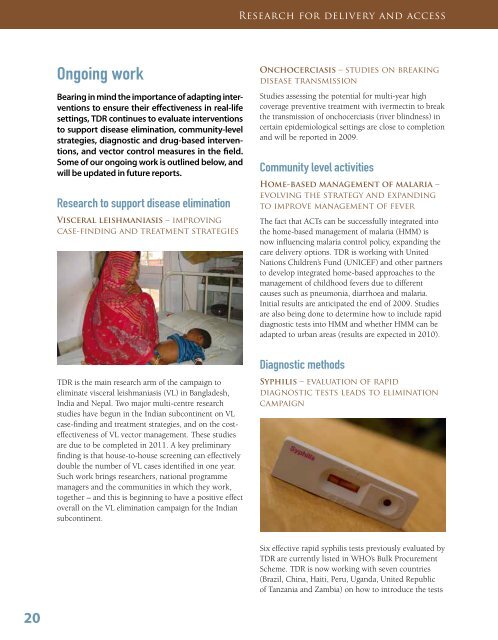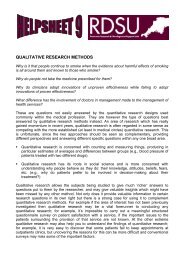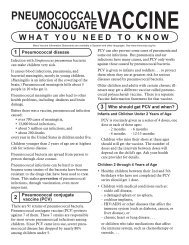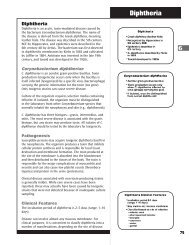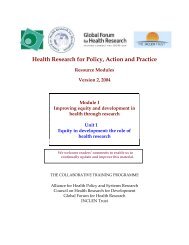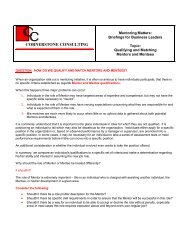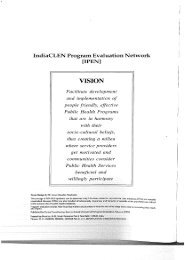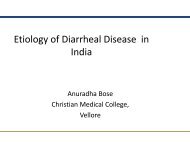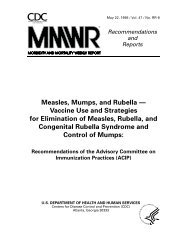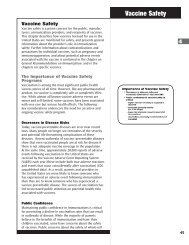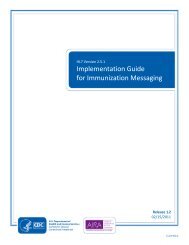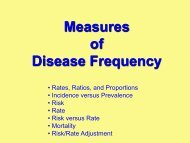documentation - The INCLEN Trust
documentation - The INCLEN Trust
documentation - The INCLEN Trust
- No tags were found...
Create successful ePaper yourself
Turn your PDF publications into a flip-book with our unique Google optimized e-Paper software.
Research for delivery and accessOngoing workBearing in mind the importance of adapting interventionsto ensure their effectiveness in real-lifesettings, TDR continues to evaluate interventionsto support disease elimination, community-levelstrategies, diagnostic and drug-based interventions,and vector control measures in the field.Some of our ongoing work is outlined below, andwill be updated in future reports.Research to support disease eliminationVisceral leishmaniasis – improvingcase-finding and treatment strategiesOnchocerciasis – studies on breakingdisease transmissionStudies assessing the potential for multi-year highcoverage preventive treatment with ivermectin to breakthe transmission of onchocerciasis (river blindness) incertain epidemiological settings are close to completionand will be reported in 2009.Community level activitiesHome-based management of malaria –evolving the strategy and expandingto improve management of fever<strong>The</strong> fact that ACTs can be successfully integrated intothe home-based management of malaria (HMM) isnow influencing malaria control policy, expanding thecare delivery options. TDR is working with UnitedNations Children’s Fund (UNICEF) and other partnersto develop integrated home-based approaches to themanagement of childhood fevers due to differentcauses such as pneumonia, diarrhoea and malaria.Initial results are anticipated the end of 2009. Studiesare also being done to determine how to include rapiddiagnostic tests into HMM and whether HMM can beadapted to urban areas (results are expected in 2010).TDR is the main research arm of the campaign toeliminate visceral leishmaniasis (VL) in Bangladesh,India and Nepal. Two major multi-centre researchstudies have begun in the Indian subcontinent on VLcase-finding and treatment strategies, and on the costeffectivenessof VL vector management. <strong>The</strong>se studiesare due to be completed in 2011. A key preliminaryfinding is that house-to-house screening can effectivelydouble the number of VL cases identified in one year.Such work brings researchers, national programmemanagers and the communities in which they work,together – and this is beginning to have a positive effectoverall on the VL elimination campaign for the Indiansubcontinent.Diagnostic methodsSyphilis – evaluation of rapiddiagnostic tests leads to eliminationcampaignSix effective rapid syphilis tests previously evaluated byTDR are currently listed in WHO’s Bulk ProcurementScheme. TDR is now working with seven countries(Brazil, China, Haiti, Peru, Uganda, United Republicof Tanzania and Zambia) on how to introduce the tests20


